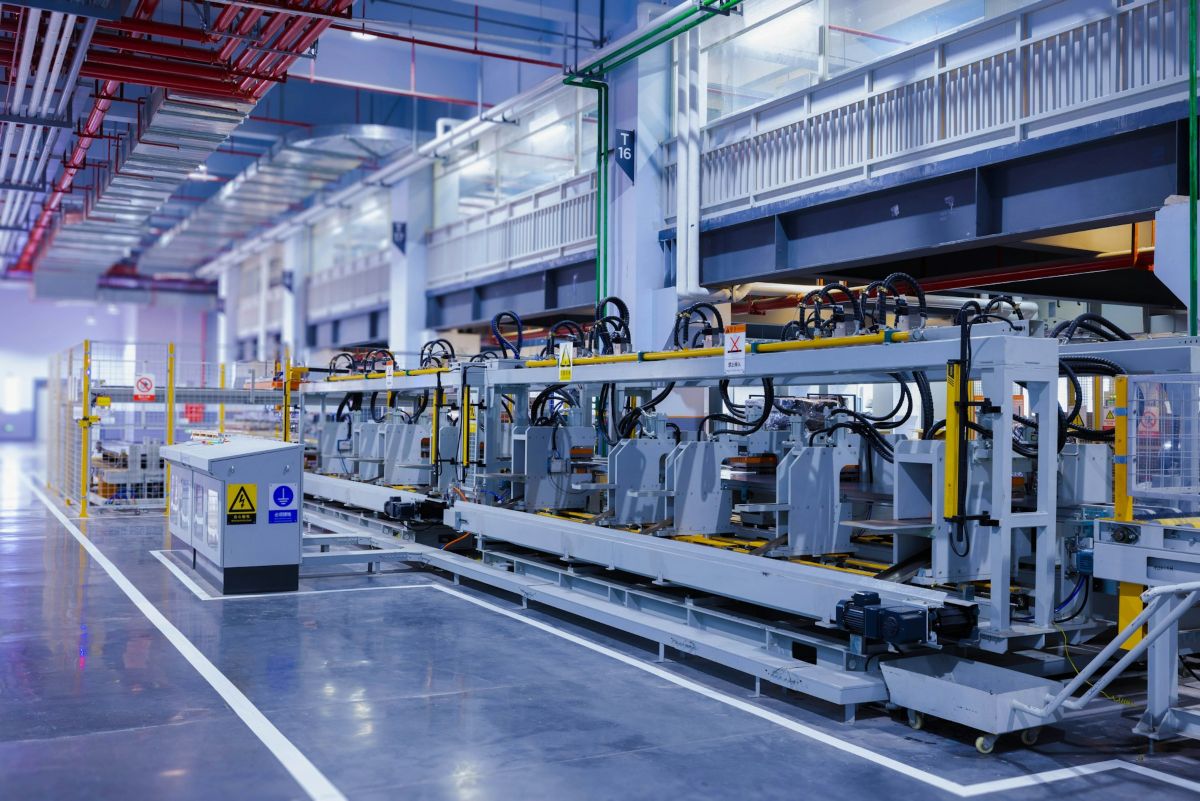Patagonia’s nonprofit arm just gave $1 million to help revolutionize California’s farms
Ventura County, California is a scenic region in the southern part of the state, full of coastal views, rolling green hills, and thousands of farms. More than 2,000 farms occupy over 260,000 acres of land there, making Ventura one of the largest agricultural-producing counties in California—a state that itself produces more than a third of the country’s vegetables and three-quarters of its fruits and nuts. All that beauty has made Ventura County one of the most desirable places to live. But it’s also home to some of the nation’s, and the world’s, highest concentrations of pesticide use—pesticides that have been linked to health issues like cancer, respiratory problems, and developmental delays. Such pesticides also pollute drinking water, contaminate soil, and lead to poor air quality. “You think Ventura County is this gorgeous part of the world,” says Jeff Tkach, CEO of Rodale Institute, a nonprofit focused on expanding regenerative organic agriculture. “But it’s an agriculture county, and the water is getting polluted, the air is getting polluted, and residents of Ventura are up in arms. They’re fed up with the ecological destruction from conventional farming.” Rodale Institute helps farmers transition from that conventional system to regenerative organic agriculture, which has benefits for soil health, the climate, and human welfare. Recently, it has turned a special focus to Ventura County. There, the Institute will provide technical assistance, help with business planning, and even equipment stipends to the area’s historically underserved farmers and ranchers. That effort is aided by a $1 million gift from the Holdfast Collective, the nonprofit shareholder of Patagonia, as well as funds from the California Department of Food and Agriculture. [Photo: Rodale Institute] Patagonia, Holdfast Collective, and regenerative agriculture In September 2022, in an announcement that Earth would be the company’s only shareholder, Patagonia launched the Holdfast Collective, a 501(c)(4) organization with a mission to preserve wildlands and pursue nature-based climate solutions, fund grassroots environmental organizations, and support politicians working to fight the climate crisis. Since then, the nonprofit has distributed more than $70 million to organizations like the Nature Conservancy, the Conservation Fund, and Re:wild (formerly the Global Wildlife Conservation). While Holdfast has given out some smaller grants for agriculture, its $1 million gift to the Rodale Institute marks the nonprofit’s first large commitment in this space, says Greg Curtis, executive director of Holdfast Collective. “And it was pretty easy to make with Rodale.” [Photo: Rodale Institute] As a brand, Patagonia has long been committed to regenerative agriculture. In 2017, it worked with Rodale Institute to found the Regenerative Organic Alliance, which established the Regenerative Organic Certified program, a certification for food, textiles, and personal care ingredients that showed a commitment to soil health, animal welfare, and farmworker fairness. Its food devision, Patagonia Provisions, was an early adopter of that certification, too. Regenerative (and organic) agriculture use a few different practices from industrial farming—things like crop rotation, conservation tillage (a system of minimal tillage that reduces soil disturbance and so lessens erosion), and cover crops (which keep fields that would otherwise be bare full of plants, another way to protect the soil from erosion and nutrient loss). Industrial farming, in contrast, relies on fertilizers and pesticides that are often derived from fossil fuels, and which can pollute the water and degrade soil health. Its practices release greenhouse gas emissions and hurt the land’s ability to capture carbon; and its monocropping and land use reduce biodiversity and destroy wild habitats. By funding the Rodale Institute, Holdfast may not be directly conserving a swath of land like it has with grants to the Nature Conservancy, but the gift points to the important role agriculture plays when it comes to our planet’s health. When it comes to engaging with the ecosystem of agriculture, “Rodale Institute is peerless,” Curtis says. “They’ve just been around and they understand. They’ve got a reputation and a way of showing up that is important for us, because it’s incredibly important for whatever we’re funding to be effective.” [Photo: Rodale Institute] How Rodale Institute aims to change Ventura County In Ventura County, Rodale Institute created a California Organic Center in 2019 to support growers interested in regenerative agriculture. The center conducts research trials on things like pests and weed management, and sits on a fifth-generation family-owned farm that has been operating since 1871. It will also be the hub for demonstrating regenerative and organic practices, and for this program funded by Holdfast Collective and the state of Califor
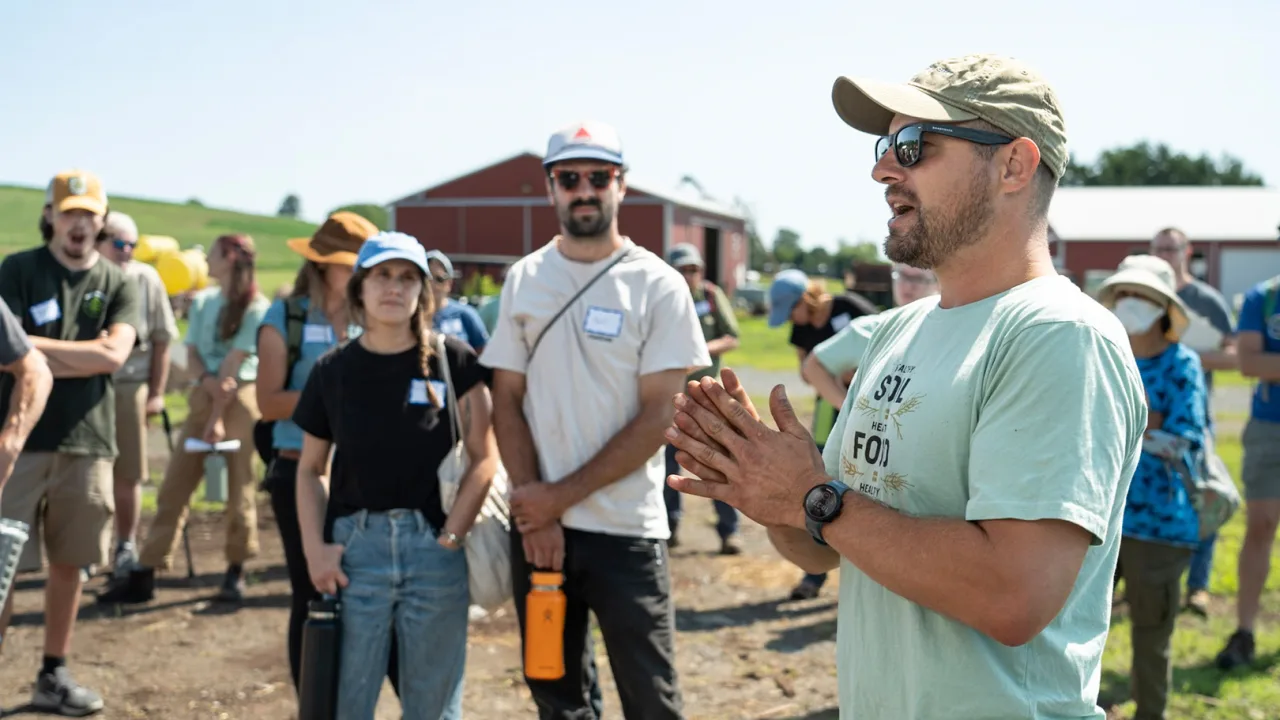
Ventura County, California is a scenic region in the southern part of the state, full of coastal views, rolling green hills, and thousands of farms. More than 2,000 farms occupy over 260,000 acres of land there, making Ventura one of the largest agricultural-producing counties in California—a state that itself produces more than a third of the country’s vegetables and three-quarters of its fruits and nuts.
All that beauty has made Ventura County one of the most desirable places to live. But it’s also home to some of the nation’s, and the world’s, highest concentrations of pesticide use—pesticides that have been linked to health issues like cancer, respiratory problems, and developmental delays. Such pesticides also pollute drinking water, contaminate soil, and lead to poor air quality.
“You think Ventura County is this gorgeous part of the world,” says Jeff Tkach, CEO of Rodale Institute, a nonprofit focused on expanding regenerative organic agriculture. “But it’s an agriculture county, and the water is getting polluted, the air is getting polluted, and residents of Ventura are up in arms. They’re fed up with the ecological destruction from conventional farming.”
Rodale Institute helps farmers transition from that conventional system to regenerative organic agriculture, which has benefits for soil health, the climate, and human welfare. Recently, it has turned a special focus to Ventura County. There, the Institute will provide technical assistance, help with business planning, and even equipment stipends to the area’s historically underserved farmers and ranchers. That effort is aided by a $1 million gift from the Holdfast Collective, the nonprofit shareholder of Patagonia, as well as funds from the California Department of Food and Agriculture.
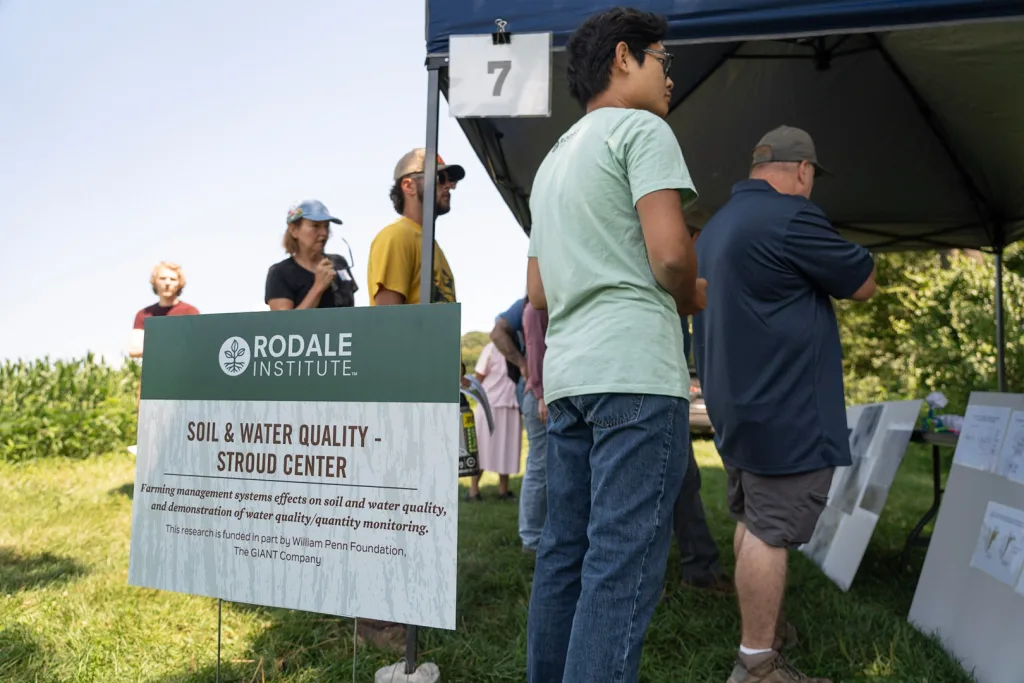
Patagonia, Holdfast Collective, and regenerative agriculture
In September 2022, in an announcement that Earth would be the company’s only shareholder, Patagonia launched the Holdfast Collective, a 501(c)(4) organization with a mission to preserve wildlands and pursue nature-based climate solutions, fund grassroots environmental organizations, and support politicians working to fight the climate crisis.
Since then, the nonprofit has distributed more than $70 million to organizations like the Nature Conservancy, the Conservation Fund, and Re:wild (formerly the Global Wildlife Conservation). While Holdfast has given out some smaller grants for agriculture, its $1 million gift to the Rodale Institute marks the nonprofit’s first large commitment in this space, says Greg Curtis, executive director of Holdfast Collective. “And it was pretty easy to make with Rodale.”
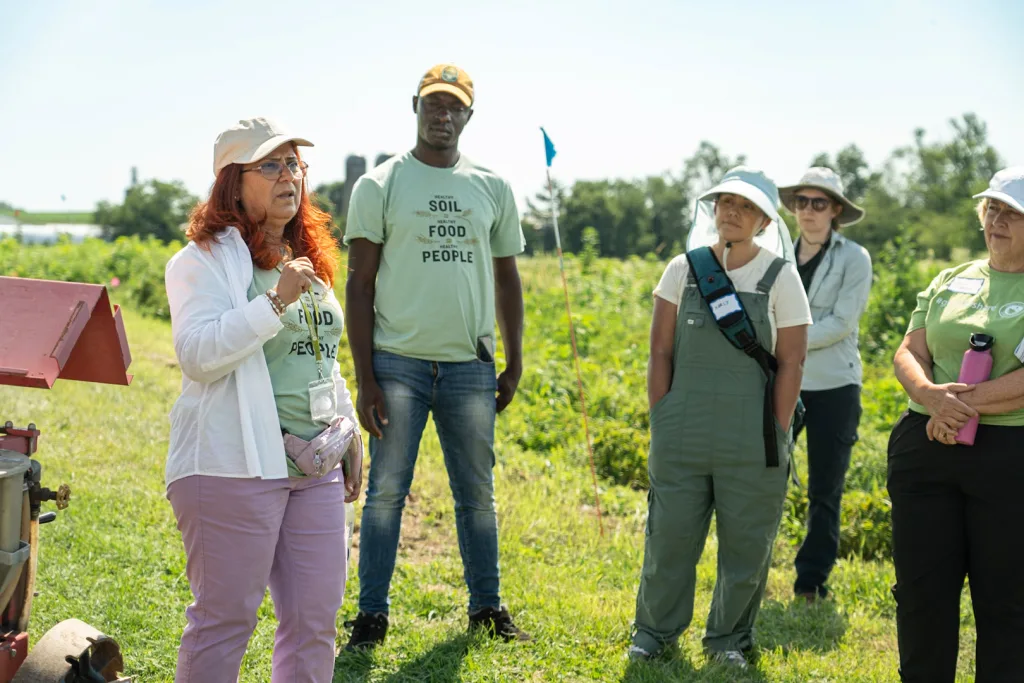
As a brand, Patagonia has long been committed to regenerative agriculture. In 2017, it worked with Rodale Institute to found the Regenerative Organic Alliance, which established the Regenerative Organic Certified program, a certification for food, textiles, and personal care ingredients that showed a commitment to soil health, animal welfare, and farmworker fairness. Its food devision, Patagonia Provisions, was an early adopter of that certification, too.
Regenerative (and organic) agriculture use a few different practices from industrial farming—things like crop rotation, conservation tillage (a system of minimal tillage that reduces soil disturbance and so lessens erosion), and cover crops (which keep fields that would otherwise be bare full of plants, another way to protect the soil from erosion and nutrient loss).
Industrial farming, in contrast, relies on fertilizers and pesticides that are often derived from fossil fuels, and which can pollute the water and degrade soil health. Its practices release greenhouse gas emissions and hurt the land’s ability to capture carbon; and its monocropping and land use reduce biodiversity and destroy wild habitats. By funding the Rodale Institute, Holdfast may not be directly conserving a swath of land like it has with grants to the Nature Conservancy, but the gift points to the important role agriculture plays when it comes to our planet’s health.
When it comes to engaging with the ecosystem of agriculture, “Rodale Institute is peerless,” Curtis says. “They’ve just been around and they understand. They’ve got a reputation and a way of showing up that is important for us, because it’s incredibly important for whatever we’re funding to be effective.”
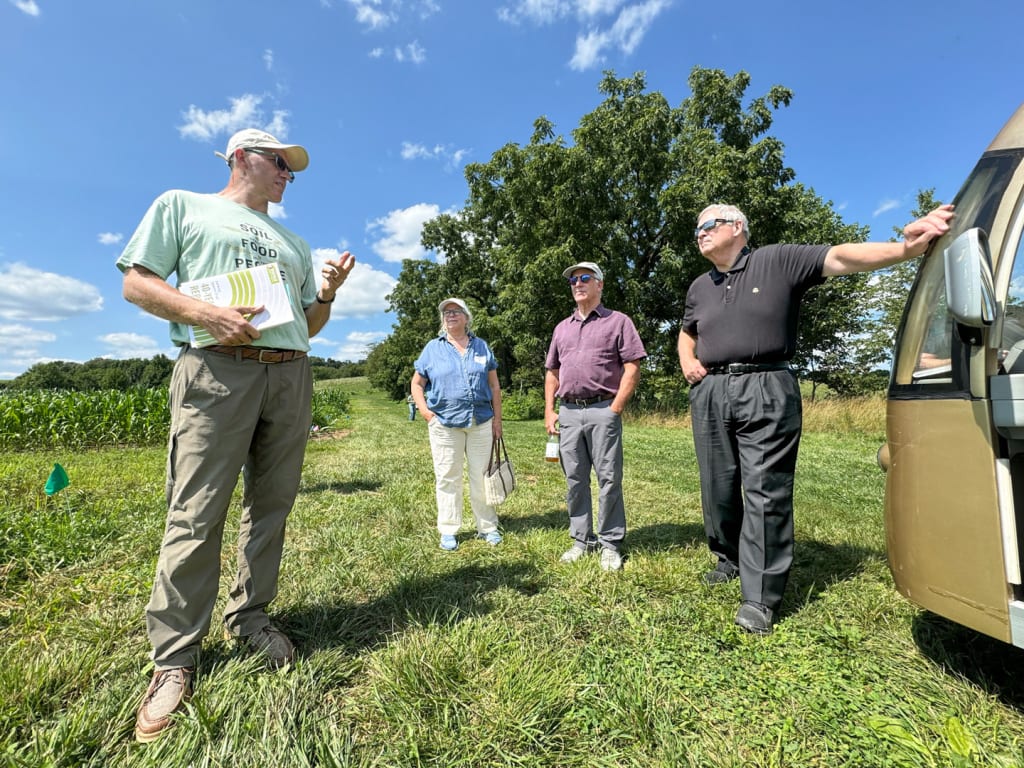
How Rodale Institute aims to change Ventura County
In Ventura County, Rodale Institute created a California Organic Center in 2019 to support growers interested in regenerative agriculture. The center conducts research trials on things like pests and weed management, and sits on a fifth-generation family-owned farm that has been operating since 1871. It will also be the hub for demonstrating regenerative and organic practices, and for this program funded by Holdfast Collective and the state of California.
The $1 million from Holdfast is being coupled with a $1.5 million grant from the California Department of Food and Agriculture, giving Rodale Institute $2.5 million to help transition farmers to regenerative organic practices. Institute staff will be able to consult directly with farmers when it comes to selecting crops, achieving certification, and even coordinating with the market, so farmers can earn a premium for their certified organic or regenerative organic produce.
“Rodale Institute believes that agriculture is a continuum, conventional being on one end and regenerative organic on the other,” Tkach says. “And so we’re helping to move farmers away from that conventional approach, which is very deleterious, toward regenerative, toward getting their organic certification . . . and then the final step on that continuum is regenerative organic.”
The funding will help local farmers (including migrant workers and other socially disadvantaged producers) access business planning help, long-term contracts for their produce, and grants to buy equipment or manage weed and pests. Farmers won’t have to pay to access these services. “We are removing every single barrier,” Tkach says.
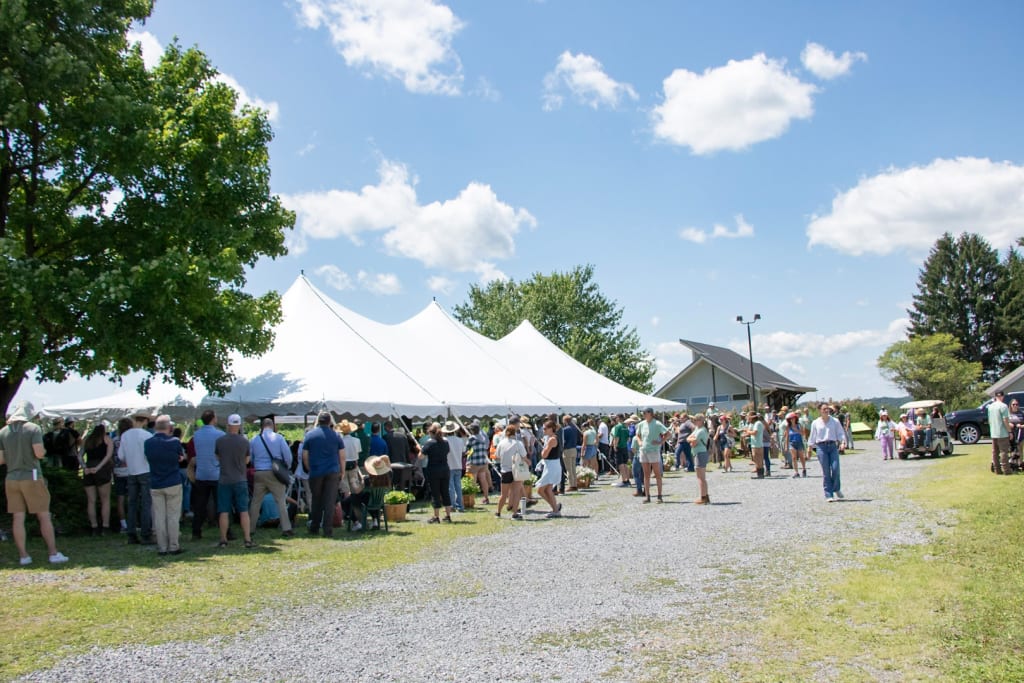
When it comes to changing the food system, people often ask what policies are needed to do so. But Tkach says, “We don’t need to wait for our policymakers to change our food system. We need to start one farmer at a time.” Farmers trust other farmers, he adds, and so that grassroots approach helps spread these practices within the agricultural community.
Part of the challenge, though, is getting customers on board with paying more in order to support sustainable, healthy practices. That’s especially tricky when millions of Americans are already feeling the pressure of rising costs at grocery stores. Tkach recognizes that, but adds that U.S. consumers have long asked for cheap food, and we’ve gotten that—along with the environmental and health consequences. “As a society, we need a shift in consciousness to get everyday people to value food more, and not just value food, but value where our food comes from and how that food was produced,” he says. Eventually, the more people who buy organic and regeneratively grown produce, the more the cost will come down, he adds. It’s also why Rodale Institute helps to their farmers to secure market contracts.
Tkach calls the funding from the Holdfast Collective “catalytic.” It allows the nonprofit to put a team of experts on the ground, in a county home to so much agricultural production, and provide free services for farmers there. “We have an opportunity to reinvent our food system. And California is often a catalyst for change for the rest of the country,” he says. “To focus on this epicenter of Ventura, which is such a critical part of the world, I believe that the work can have an exponential effect nationwide.”

















